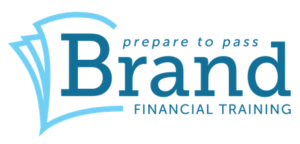Professional Paraplanner’s TDQ (Training, Development and Qualifications) series, is run in conjunction with key support providers, such as Brand Financial Training, and aims to test your knowledge of the financial services market, as part of your overall training goals and exam techniques.
The following questions, which can also be found in our May 2021 issue, relate to examinable Tax year 20/21, examinable by the CII until 31 August 2021.
QUESTIONS
1. Remuneration for financial advice is in the form of a fee and is structured as a customer agreed remuneration. This is commonly known as:
A. a disclosure document
B. terms of business
C. adviser charging
D. menu of charges
2. Manuel is investing in a structured product offering a return of 110% of the FTSE 100 or full return of capital if this is higher at redemption. Manuel should be made aware that all structured products:
A. are lower risk than other products.
B. offer a high level of liquidity.
C. involve counterparty risk.
D. have an investment term of 12 months.
3. In which of the following scenarios would a child’s income be treated as if it belonged to their parent or grandparent for tax purposes?
A. Steven opens a bank account in his son’s name which earns £80 interest
B. Stefan, aged 12, earns £30 per week delivering newspapers
C. Simon opens a building society account for his grandson which earns £110 interest
D. Sarah, aged 16, receives money from her parents and invests it in a cash ISA where it earns £115 interest
4. Gordon has decided to save for his retirement using a Self-invested personal pension (SIPP). His adviser should make him aware that: Tick all that apply.
A. loans to an employer cannot exceed 50% of scheme assets.
B. assets such as wines and antiques could give rise to tax charges.
C. the SIPP could be used to buy a commercial property from a “connected person”.
D. loans to an employer are permitted.
5. Which of the following statements is a drawback of using the multiple of salary basis to calculate the amount of key person insurance required by a company?
A. It does not take account of the key person’s age
B. It can only be based on a multiple of 5
C. It is only loosely related to the key person’s contribution to profits
D. It only takes a short-term time factor into account
6. You feel that your client, Terry, might prefer to invest in an offshore reporting fund instead of a non-reporting fund. The reason for this is that:
A. he will be able to avoid the non-reclaimable withholding tax.
B. it would enable him to use his CGT annual exempt amount.
C. he will benefit from enhanced consumer protection.
D. he will be able to invest in more specialist areas e.g. commodities.
7. What does the price earnings ratio measure?
A. The profitability of the company
B. How highly investors value a company
C. Expected return on a share
D. The relationship between share price and book value
8. For the first time, Julian is drawing up the accounts for his buy-to-let properties having decided that it was not worth paying an accountant to do so as he feels he is quite capable of doing them himself. He should be aware that HMRC require these records to be kept for at least:
A. 12 months.
B. 3 years.
C. 5 years.
D. 6 years.
9. Graham sold half of his property to a home reversion provider and received fifteen percent of its total value in the form of a lump sum payment. The property is now in need of repair. How will the repair bill be paid?
A. The bill will be split 50:50 between Graham and the provider.
B. The bill will be split 15:85 between Graham and the provider, in that order.
C. The home reversion provider must foot the whole bill.
D. Graham must pay for all of the repairs from his own funds.
10. Which of the following is funded based on assessed need only and disregards the level of a person’s income and capital?
A. Personal care
B. Accommodation costs
C. Continuous health care
D. Domiciliary care






























